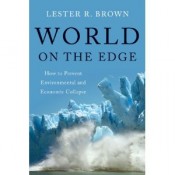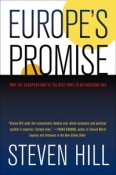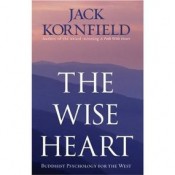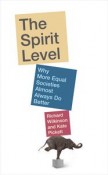Q&A: ETHAN NADELMANN, DRUG POLICY ALLIANCE
Written on December 11th, 2014 |
Q&A: LESTER BROWN, Worldwatch Institute
Written on April 14th, 2011 |
Aired 04/10/11
LESTER BROWN has been described by the Washington Post as "one of the world's most influential thinkers." After working with the Department of Agriculture in international agricultural development, Brown helped establish the Overseas Development Council, then founded the Worldwatch Institute, which plays an important role in the public's understanding of trends in our global environment with its annual State of the World report and Vital Signs. In 2001, he left Worldwatch, founded Earth Policy Institute, and continues his vital work. During a career that began with tomato farming, Brown has been honored with numerous prizes, including the MacArthur "Genius" Fellowship, the United Nations Environment Prize, and Japan's Blue Planet Prize, along with some 20 honorary degrees.
In his new book, WORLD ON THE EDGE: HOW TO PREVENT ENVIRONMENTAL AND ECONOMIC COLLAPSE, BROWN lays out the symptoms, the diagnosis, and the cure, what he calls "Plan B". He estimates that we could solve all the world's greatest problems for $200B a year - less than a third the US defense budget - but it will take an all-out response at wartime speed proportionate to the magnitude of the threats facing civilization.
Q&A: STEVEN HILL, Author – Europe’s Promise
Written on June 2nd, 2010 |
Aired 05/30/10
We're hearing a lot about the trouble Europe is in. The debt crisis in Greece, and perhaps Spain, Portugal, and Italy, is threatening the Euro and the European Union. What's really going on? How did it happen? How bad is it? How will they deal with it? And what does it mean for the rest of the world and for the US in particular?
We'll deal with those issues this Sunday, but that's not all. While the bad news of this Euro crisis makes headlines in the US, a quiet and successful revolution taking place in Europe does not. Europe seems to be finding a way to make capitalism and democracy work for people, not just for corporations. I think this is a critical unreported story in terms of its potential impact. Here's just a few things you may not have heard about.
The European Union, 27 member nations with a half billion people, has become the largest, wealthiest trading bloc in the world, producing nearly a third of the world's economy - nearly as large as the U.S. and China combined. Europe has more Fortune 500 companies than either the US, China or Japan.
European nations are rated by the World Health Organization as having the best health care systems in the world. Yet they spend far less than the United States for universal coverage, even as U.S. health care is ranked 37th.
Europe leads in confronting global climate change with renewable energy technologies like solar and wind power, conservation and "green design," creating hundreds of thousands of new jobs in the process. Consequently, Europe's ecological "footprint" (the amount of the earth's capacity that a population consumes) is about half that of the United States for the same standard of living.
Q&A: JACK KORNFIELD, meditation teacher
Written on May 25th, 2010 |
Aired 05/23/10
JACK KORNFIELD is co-founder of two major meditation centers in the US and author of several books including After the Ecstasy the Laundry, and Buddha's Little Instruction Book. Kornfield makes a rare appearance in Southern California to offer a 3 hour workshop Saturday May 29th as a benefit for InsightLA, a local meditation center in Santa Monica.
Q&A: RICHARD WILKINSON & KATE PICKETT, Authors – The Spirit Level: Why More Equal Societies Almost Always Do Better
Written on February 5th, 2010 |
Aired 01/31/10
RICHARD WILKINSON & KATE PICKETT authors of an important new book: The Spirit Level: Why More Equal Societies Almost Always Do Better
In the UK, the Guardian says The Spirit Level "might be the most important book of the year, and The New Statesman named it one of the top ten books of the past decade.
Based on thirty years' research, The Spirit Level shows that unequal societies are bad for the well-off as well as the poor, when it comes to health and social problems, child well being, life expectancy, infant mortality, obesity, educational scores, drop out rates, illegal drug use, mental illness, homicide, incarceration, CO2 emissions, recycling, social mobility, innovation, and levels of trust.
The good news: If all these ills are related to one measure - income inequality, then, decreasing inequality should be the central goal of our politics because we can be confident that it works.
RICHARD WILKINSON has played a leading role in international research on inequality. He studied economic history at the London School of Economics before training in epidemiology, and is Professor Emeritus at the University of Nottingham Medical School and Honorary Professor at University College London.
KATE PICKETT is a senior lecturer at the University of York and a National Institute for Health Research Career Scientist. She studied physical anthropology at Cambridge, nutritional sciences at Cornell and epidemiology at Berkeley before spending four years as an Assistant Professor at the University of Chicago.
